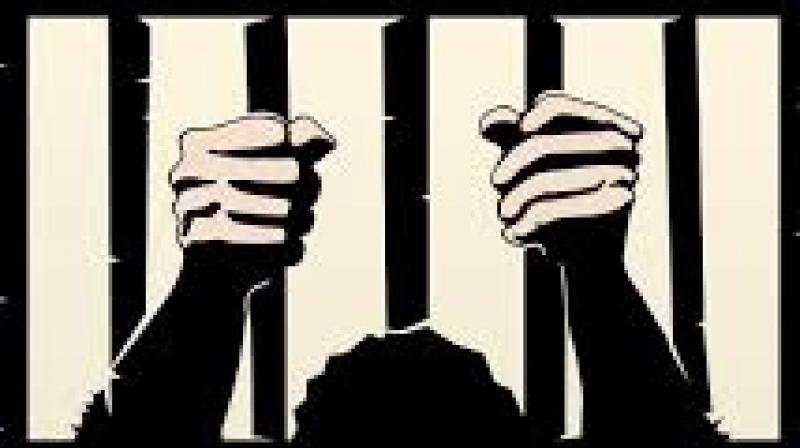Acquittal in UAPA a long legal battle for prisoners
Strangely, it was five activists from different parts of the country who were arrested for inciting the riots!

Hyderabad: Since 2013, there has been a spike in the jailing of those accused under the provisions of the Unlawful Activities (Prevention) Act (UAPA). National Crime Records Bureau (NCRB) data reveals that approximately 2700 cases have been registered over a span of three years and 75 per cent of the cases have been tried in courts.
Earlier this year, a gathering of Dalits at Bhima Koregaon near Pune in Maharashtra, was attacked by Hindutva groups who resented Dalits asserting themselves (the occasion was the battle of Bhima Koregaon 200 years ago, when the Dalits helped the British to vanquish the upper caste Peshwa's forces). Strangely, it was five activists from different parts of the country who were arrested for inciting the riots!
Just like these arrested activists, a growing number of lawyers, students and lecturers across the country are being charged by the police with having links to Naxalites.
From Telangana, Ravindranath, general secretary of the Committee for Release of Political Prisoners (CRPP), said, “Recently, in addition to Varara Vara Vara Rao’s arrest, a few more were arrested. P. Ramesh Chander, the general secretary of the district Civil Liberties Committee (CLC), Warangal, along with B. Durga Prasad, journalist, and Badri, student president of Osmania University, were arrested under the UAPA Act without any prima facie evidence. They are wasting away in jails. Such gross misuse of the law to arrest activists who fight for our rights is terrible and those arrested must be recognised as political prisoners and not criminals.”
The main concern with the UAPA law is its inexactness, the clauses remain blurry and too broad allowing its application to impact a myriad of activities deemed unlawful in nature as the government of the day decrees.
The main clause of the Act is: “committing, abetting or advocating commission of an unlawful activity relating to secession from India, disruption of our sovereignty, integrity or causing dissatisfaction against India, eludes the presentation of basic clauses that could clarify the actual context upon which an accused can be imprisoned.
Namrata Das, a criminal lawyer, said, “For the accused to prove prima facie the observance of a fact to be true until proven false, is a very long and hard process. The obscurities in the law do not help matters. Often it takes years to gain acquittal, but in the meantime, the arrested activists must prepare for a long legal battle to prove their innocence.” The law was amended in 2004, but it still continues to be used to arrest lawyers, activists, and others whose views are inimical to the State.
The CRPP, in response to such drastic imprisonments of locals, began a week long seminar and rally from Saturday to educate the public and demand dissolution of the UAPA Act among other pressing issues including the plea to release prisoners who were arrested for the Bhima Koregaon riots.
Inmates denied bail until proven innocent
The controversial UAPA Act is not only ambiguous, allowing the authorities wide scope in making arrests, it also makes no mention of the terms and conditions of bail for those accused. Though the Act describes the extent of the law and the broadly general prerequisites for arrest, it lacks any mention of the concern of bail for the accused.
This means the accused can remain in jail for larger periods of time, based on their case. A provision in the bill states that under Section 43 (D) (5), the accused in the case will remain imprisoned until he is proven innocent. Likewise, if he is guilty, he will never be granted bail.
Speaking to the media on Saturday, senior advocate Anand Grover, said, “The UAPA law is unlike any other criminal law. In this case, the court has to be fully convinced of the nature of the crime. This stringent requirement becomes thus a burden on the accused even as the period of detention is longer and they remain arrested until the trial is completed." Another issue is the confusion in the documentation in the FIR and that of the case diary, Mr Grover said. "Inconsistent information can lead to longer trials. But all said and done, most often, the defamed tagline of probable terrorist is not one that can be shaken off easily and the process can seem never ending.”
Even if the accused is finally acquitted, she or he has had to undergo the long legal process and incarceration which can change a person’s life and cause problems in re-integrating into society. The scars of such an experience can last for a long time in the mind of the victim.

